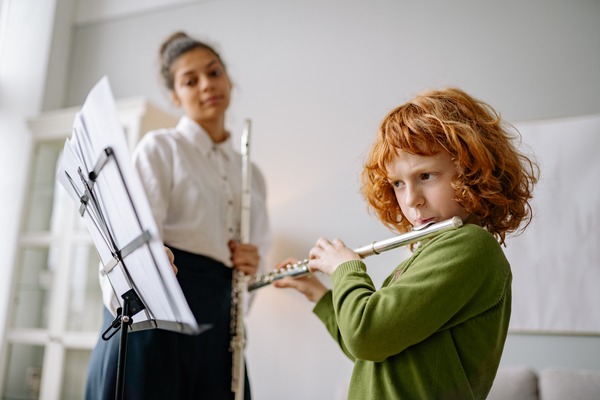Top Reasons to Get Your Kids to Play an Instrument
Music has the incredible ability to captivate our hearts and minds, evoking emotions and creating lasting memories. For children, learning to play an instrument not only has a profound impact on their development and their overall well-being, but the time also put in continues to “give back” many times over throughout the entire life of the individual.
In this blog post, we will explore the top reasons why getting kids to play an instrument is not only enjoyable but also beneficial for their cognitive, emotional, and social growth.
Cognitive Development
Cognitive development refers to the growth and enhancement of reasoning abilities such as memory, problem-solving, and critical thinking. The music lessons in Singapore at Musicion as well as other institutions can play a significant role in promoting cognitive development among children. Numerous studies have shown that learning to play an instrument can have a positive impact on academic performance.
Music education requires focus and attention to detail, which helps children develop their intellectual skills. By reading sheet music, understanding musical structures, and practicing complex techniques, children engage their brains in a way that enhances their overall cognitive abilities. Music lessons provide a structured and systematic approach to learning, allowing students to develop their cognitive skills in a supportive environment.

In addition to improving academic performance, music lessons also contribute to enhanced memory retention. Learning to play an instrument involves memorizing notes, chords, and melodies, which strengthens memory capacity. The repetitive nature of practicing and performing music helps reinforce neural connections in the brain, leading to improved long-term memory. Expert instructors guide students through various exercises and techniques that specifically target memory development. By engaging in regular music lessons, children in Singapore can experience the benefits of music education and enhance their overall cognitive abilities.
Emotional and Social Benefits
Music has the power to touch our innermost being and evoke emotions on every level. Learning to play an instrument can boost a child’s self-confidence by providing them with a sense of achievement. As they progress in their musical journey, mastering new songs and techniques, their self-esteem grows, and they start to believe in their abilities.
Moreover, playing an instrument offers opportunities for social interaction and collaboration. Joining bands, orchestras, or music groups allows children to connect with like-minded peers, fostering friendships and teamwork. These ensemble experiences teach valuable social skills such as active listening, compromise, and cooperation.
Discipline and Time Management
Learning to play an instrument requires discipline and commitment. Regular practice is essential for progress, and it teaches children the value of perseverance and hard work. By setting goals and putting in the necessary effort to achieve them, children develop the discipline that can benefit them in all areas of life.
Additionally, playing an instrument helps children develop crucial time management skills. Balancing schoolwork, extracurricular activities, and practice time teaches them how to prioritize tasks and manage their time effectively. They learn to allocate time for various commitments and develop a sense of responsibility.
Creative Expression
Music is a powerful form of creative expression, allowing children to explore their emotions and ideas. Learning to play an instrument nurtures creativity by providing a medium through which children can express themselves freely. They can experiment with different musical genres and styles, discovering their own unique artistic identity.
In addition to playing pre-existing music, children can also delve into composition and improvisation. These creative processes encourage them to think outside the box, fostering innovative thinking and problem-solving skills. Through music, children can develop a lifelong appreciation for the arts and cultivate their artistic potential.
Physical and Coordination Skills
Playing an instrument requires intricate hand-eye coordination. The precise finger movements needed to produce melodies and harmonies help improve fine motor skills. From plucking guitar strings to pressing piano keys, children develop dexterity and coordination that can carry over to other activities requiring similar motor skills.
Certain instruments, such as wind instruments, can have physical benefits as well. Playing these instruments increases lung capacity and strengthens respiratory muscles, improving overall breathing control. Additionally, maintaining proper posture while playing an instrument enhances muscle control and contributes to better overall physical health.

The benefits of getting kids to play an instrument reach far beyond musical proficiency. From improved academic skills and enhanced cognitive abilities to boosted self-confidence and refined social skills, music education has a transformative impact on a child’s development. By cultivating discipline, creativity, and coordination, playing an instrument equips children with valuable skills that extend beyond the world of music.
As parents, let us encourage and support our children in their musical endeavors. Whether they choose to play the piano, guitar, violin, or any other instrument, the journey of learning and self-expression through music will shape them into well-rounded individuals. Let us embrace the power of music and empower our children to unlock their full potential.




